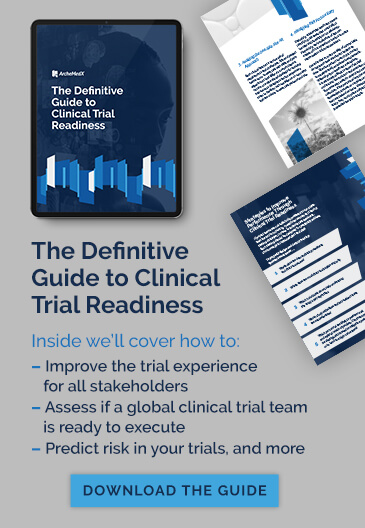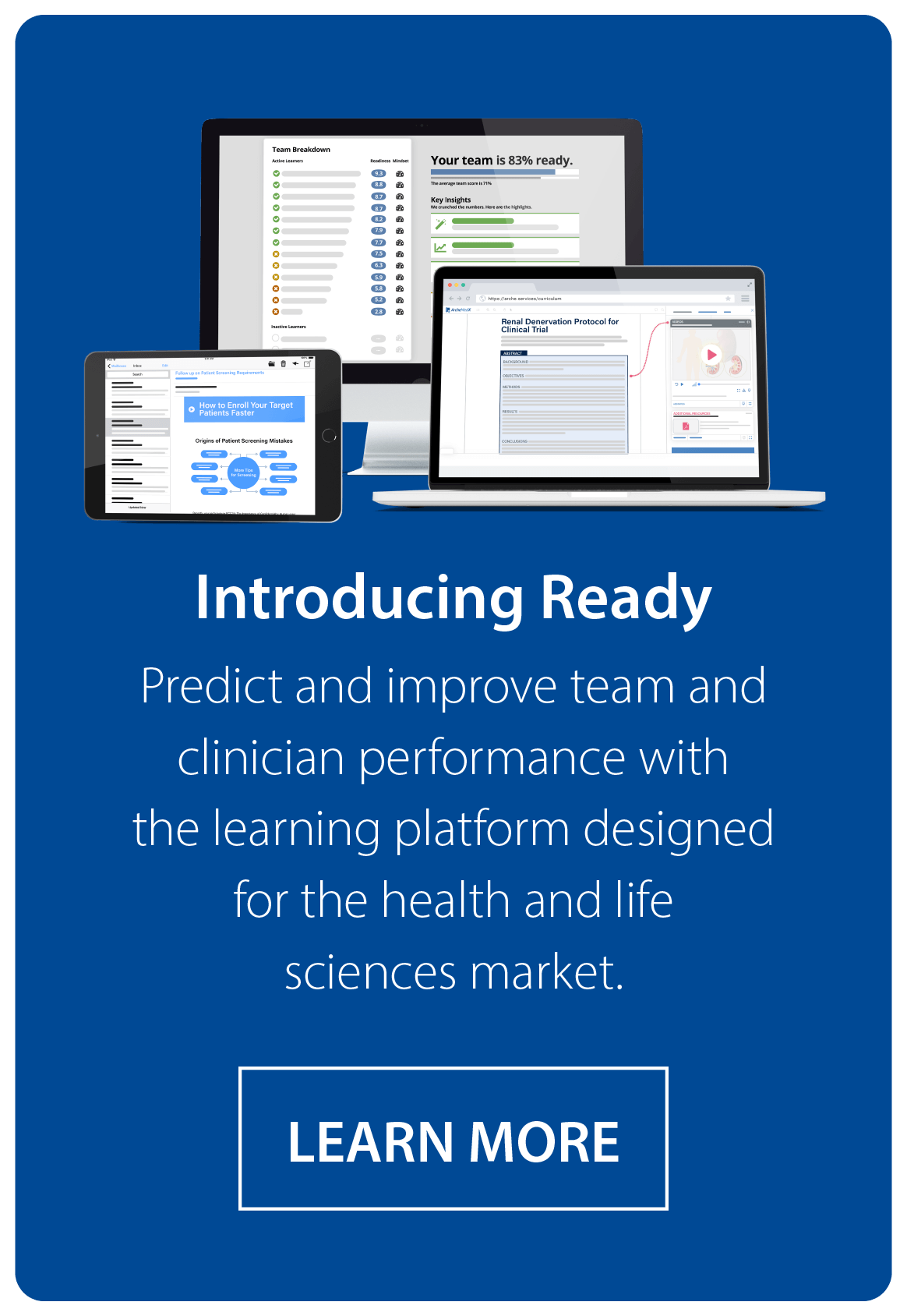We know we should workout, but who doesn’t have an unused gym membership or a basement treadmill collecting dust.
We know we should eat better, but who hasn’t stared at an empty container of Ben and Jerry’s while binge-watching Game of Thrones.
We all know we should get more sleep, but who hasn’t found themselves scrolling through emails at 11:30 at night.
The reality is that knowing very rarely equals doing.
In clinical research, the knowing-vs-doing challenge rears its ugly head all of the time. CRAs and CRCs may think they know the ins-and-outs of a study, but it doesn’t mean they are ready to successfully initiate a site. PIs and Sub-Is may believe they understand the protocol, but it doesn’t mean they are ready to successfully identify and recruit suitable patients. Study site personnel may be familiar with the study binder, but it doesn’t mean they are ready to mitigate challenges and avoid major protocol deviations.

The weak link in the knowing-vs-doing chain is that individuals and teams must be ready to take action (to ’do’). And evidence generated over the past 30 years suggests that “readiness” is predicated on a complex suite of cognitive mindsets (e.g., confidence, reflection, intention…etc.) that either catalyze or prohibit action.
So the next time you are confronted with Project staff, PIs or Site Personnel who have been “trained” on a protocol but are struggling to meet goals or avoid deviations; ask yourself if the mindset(s) of the individuals or teams is working for or against your goals.
If you can’t connect the Knowing -> Readiness/Mindset -> Doing dots, then you are mi$$ing a huge piece of the puzzle.





